- Home
- Wilkie Collins
Hide and Seek Page 27
Hide and Seek Read online
Page 27
As he disappeared in this way, Mr. Blyth bustled up to the place where Mat had been standing, and received his guests there, with great cordiality, but also with some appearance of flurry and perplexity of mind. The fact was, that Lady Brambledown had just remembered that she had not examined Valentine's works yet, through one of those artistic tubes which effectively concentrate the rays of light on a picture, when applied to the eye. Knowing, by former experience, that the studio was furnished with one of these little instruments, her ladyship now intimated her ardent desire to use it instantly on "Columbus." Valentine promised to get it, with his usual ready politeness; but he had not the slightest idea where it actually was, for all that. Among the litter of small things that had been cleared out of the way, when the painting-room was put in order, there were several which he vaguely remembered having huddled together for safety in the bottom of his bureau. The tube might possibly have been among them; so in this place he determined to look for it—being quite ignorant, if the search turned out unsuccessful, where he ought to look next.
After begging the new visitors to walk in, he opened the bureau, which was large and old-fashioned, with a little bright key hanging by a chain that he unhooked from his watch-guard; and began searching inside amid infinite confusion—all his attention concentrated in the effort to discover the lost tube. It was not to be found in the bottom of the bureau. He next looked, after a little preliminary hesitation, into a long narrow drawer opening beneath some pigeon-hole recesses at the back.
The tube was not there, either; and he shut the drawer to again, carefully and gently—for inside it was the Hair Bracelet that had belonged to Madonna's mother, lying on the white handkerchief, which had also been taken from the dead woman's pocket. Just as he closed the drawer, he heard footsteps at his right hand, and turned in that direction rather suspiciously—locking down the lid of the bureau as he looked round. It was only the civil Mr. Gimble, wanting to know what Mr. Blyth was searching for, and whether he could help him. Valentine mentioned the loss of the tube; and Mr. Gimble immediately volunteered to make one of pasteboard. "Ten thousand thanks," said Mr. Blyth, hooking the key to his watch-guard again, as he returned to Lady Brambledown with his friend. "Ten thousand thanks; but the worst of it is, I don't know where to find the pasteboard."
If, instead of turning to the right hand to speak to Mr. Gimble, Valentine had turned to the left, he would have seen that, just as he opened the bureau and began to search in it, Mr. Marksman finding the way into the painting-room clear once more, had rolled himself quietly round the door-post again; and had then, just as quietly, bent forward a little, so as to look sideways into the bureau with those observant eyes of his which nothing could escape, and which had been trained by his old Indian experience to be always unscrupulously at work, watching something. Little did Mr. Blyth think, as he walked away, talking with Mr. Gimble, and carefully hooking his key on to its swivel again, that Zack's strange friend had seen as much of the inside of the bureau as he had seen of it himself.
"He shut up his big box uncommon sharp, when that smilin' little chap come near him," thought Mat. "And yet there didn't seem nothing in it that strangers mightn't see. There wasn't no money there—at least none that I set eyes on. Well! it's not my business. Let's have another look at the picter."
In the affairs of art, as in other matters, important discoveries are sometimes made, and great events occasionally accomplished, by very ignoble agencies. Mat's deplorable ignorance of Painting in general, and grossly illiterate misunderstanding of the subject represented by Columbus in particular, seemed to mark him out as the last man in the world who could possibly be associated with Art Mystic in the character of guardian genius. Yet such was the proud position which he was now selected by Fate to occupy. In plain words, Mr. Blyth's greatest historical work had been for some little time in imminent danger of destruction by falling; and Mat's "look at the picter," was the all-important look which enabled him to be the first person in the room who perceived that it was in peril.
The eye with which Mr. Marksman now regarded the picture was certainly the eye of a barbarian; but the eye with which he afterwards examined the supports by which it was suspended, was the eye of a sailor, and of a good practical carpenter to boot. He saw directly, that one of the two iron clamps to which the frame-lines of "Columbus" were attached, had been carelessly driven into a part of the wall that was not strong enough to hold it against the downward stress of the heavy frame. Little warning driblets of loosened plaster had been trickling down rapidly behind the canvas; but nobody heard them fall in the general buzz of talking; and nobody noticed the thin, fine crack above the iron clamp, which was now lengthening stealthily minute by minute.
"Just let me by, will you?" said Mat quietly to some of his neighbors. "I want to stop those flying women and the man in the crank ship from coming down by the long run."
Dozens of alarmed ladies and gentlemen started up from their chairs. Mat pushed through them unceremoniously; and was indebted to his want of politeness for being in time to save the picture. With a grating crack, and an accompanying descent of a perfect slab of plaster, the loose clamp came clean out of the wall, just as Mat seized the unsupported end and side of the frame in his sturdy hands, and so prevented the picture from taking the fatal swing downwards, which would have infallibly torn it from the remaining fastening, and precipitated it on the chairs beneath.
A prodigious confusion and clamoring of tongues ensued; Mr. Blyth being louder, wilder, and more utterly useless in the present emergency than any of his neighbors. Mat, cool as ever, kept his hold of the picture; and, taking no notice of the confused advice and cumbersome help offered to him, called to Zack to fetch a ladder, or, failing that, to "get a hoist" on some chairs, and cut the rope from the clamp that remained firm. Wooden steps, as young Thorpe knew, were usually kept in the painting-room. Where had they been removed to now? Mr. Blyth's memory was lost altogether in his excitement. Zack made a speculative dash at the flowing draperies which concealed the lumber in one corner, and dragged out the steps in triumph.
"All right; take your time, young 'un: there's a knife in my left-hand breeches' pocket," said Mat. "Now then, cut away at that bit of rope's-end, and hold on tight at top, while I lower away at bottom. Steady! Take it easy, and—there you are!" With which words, the guardian genius left Art-Mystic resting safely on the floor, and began to shake his coattails free of the plaster that had dropped on them.
"My dear sir! you have saved the finest picture I ever painted," cried Valentine, warmly seizing him by both hands. "I can't find words to express my gratitude and admiration—"
"Don't worry yourself about that," answered Mat; "I don't suppose I should understand you if you could find 'em. If you want the picter put up again, I'll do it. And if you want the carpenter's muddle head punched, who put it up before, I shouldn't much mind doing that either," added Mat, looking at the hole from which the clamp had been torn with an expression of the profoundest workmanlike disgust.
A new commotion in the room—near the door this time—prevented Mr. Blyth from giving an immediate answer to the two friendly propositions just submitted to him.
At the first alarm of danger, all the ladies—headed by the Dowager Countess, in whom the instinct of self-preservation was largely developed—had got as far away as they could from the falling picture, before they ventured to look round at the process by which it was at last safely landed on the floor. Just as this had been accomplished, Lady Brambledown—who stood nearest to the doorway—caught sight of Madonna in the passage that led to it. Mrs. Blyth had heard the noise and confusion downstairs, and finding that her bell was not answered by the servants, and that it was next to impossible to overcome her father's nervous horror of confronting the company alone, had sent Madonna down-stairs with him, to assist in finding out what had happened in the studio.
While descending the stairs with her companion, the girl had anticipated that they might easily discov
er whether anything was amiss, without going further than the passage, by merely peeping through the studio door. But all chance of escaping the ordeal of the painting-room was lost the moment Lady Brambledown set eyes on her. The Dowager Countess was one of Madonna's warmest admirers; and now expressed that admiration by pouncing on her with immense affection and enthusiasm from the painting-room door-way. Other people, to whom the deaf and dumb girl was a much more interesting sight than "Columbus," or the "Golden Age," crowded round her; all trying together, with great amiability and small intelligence, to explain what had happened by signs which no human being could possibly understand. Fortunately for Madonna, Zack (who ever since he had cut the picture down had been assailed by an incessant fire of questions about his strange friend, from dozens of inquisitive gentlemen) happened to look towards her, over the ladies' heads, and came directly to explain the danger from which "Columbus" had escaped. She tried hard to get away, and bear the intelligence to Mrs. Blyth; but Lady Brambledown, feeling amiably unwilling to resign her too soon, pitched on the poor engraver standing tremulous in the passage, as being quite clever enough to carry a message up-stairs, and sent him off to take the latest news from the studio to his daughter immediately.
Thus it was that when Mr. Blyth left Zack's friend to see what was going on near the door, he found Madonna in the painting-room, surrounded by sympathizing and admiring ladies. The first words of explanation by which Lady Brambledown answered his mute look of inquiry, reminded him of the anxiety and alarm that his wife must have suffered; and he ran up-stairs directly, promising to be back again in a minute or two.
Mat carelessly followed Valentine to the group at the doorway—carelessly looked over some ladies' bonnets—and saw Madonna, offering her slate to the Dowager Countess at that moment.
The sweet feminine gentleness and youthful softness of the girl's face, looked inexpressibly lovely, as she now stood shy and confused under the eager eyes that were all gazing on her. Her dress, too, had never more powerfully aided the natural attractions of her face and figure by its own loveable charms of simplicity and modesty, than now, when the plain grey merino gown, and neat little black silk apron which she always wore, were contrasted with the fashionable frippery of fine colors shining all around her. Was the rough Mr. Marksman himself lured at first sight into acknowledging her influence? If he was, his face and manner showed it very strangely.
Almost at the instant when his eyes fell on her, that clay-cold change which had altered the color of his swarthy cheeks in the hosier's shop at Dibbledean, passed over them again. The first amazed look that he cast on her, slowly darkened, while his eyes rested on her face, into a fixed, heavy, vacant stare of superstitious awe. He never moved, he hardly seemed to breathe, until the head of a person before him accidentally intercepted his view. Then he stepped back a few paces; looked about him bewildered, as if he had forgotten where he was; and turned quickly towards the door, as if resolved to leave the room immediately.
But there was some inexplicable influence at work in his heart that drew him back, in spite of his own will. He retraced his steps to the group round Madonna—looked at her once more—and, from that moment, never lost sight of her till she went up stairs again. Whichever way her face turned, he followed the direction, outside the circle, so as to be always in front of it. When Valentine re-appeared in the studio, and Madonna besought him by a look, to set her free from general admiration, and send her back to Mrs. Blyth, Mat was watching her over the painter's shoulder. And when young Thorpe, who had devoted himself to helping her in communicating with the visitors, nodded to her as she left the room, his friend from the backwoods was close behind him.
CHAPTER VI. THE FINDING OF THE CLUE.
Mr. Blyth's visitors, now that their common center of attraction had disappeared, either dispersed again in the painting-room, or approached the door to take their departure. Zack, turning round sharply after Madonna had left the studio, encountered his queer companion, who had not stirred an inch while other people were all moving about him.
"In the name of wonder, what has come to you now? Are you ill? Have you hurt yourself with that picture?" asked Zack, startled by the incomprehensible change which he beheld in his friend's face and manner.
"Come out," said Mat. Young Thorpe looked at him in amazement; even the sound of his voice had altered!
"What's wrong?" asked Zack. No answer. They went quickly along the passage and down to the garden gate, in silence. As soon as they had got into one of the lonely bye-roads of the new suburb, Mat stopped short; and, turning full on his companion, said: "Who is she?" The sudden eagerness with which he spoke, so strangely at variance with his usual deliberation of tone and manner, made those three common words almost startling to hear.
"She? Who do you mean?" inquired young Thorpe.
"I mean that young woman they were all staring at."
For a moment, Zack contemplated the anxiety visible in his friend's face, with an expression of blank astonishment; then burst into one of his loudest, heartiest, and longest fits of laughter. "Oh, by Jove, I wouldn't have missed this for fifty pounds. Here's old Rough and Tough smitten with the tender passion, like all the rest of us! Blush, you brazen old beggar, blush! You've fallen in love with Madonna at first sight!"
"Damn your laughing! Tell me who she is."
"Tell you who she is? That's exactly what I can't do."
"Why not? What do you mean? Does she belong to painter-man?"
"Oh, fie, Mat! You mustn't talk of a young lady belonging to anybody, as if she was a piece of furniture, or money in the Three per Cents, or something of that sort. Confound it man, don't shake me in that way! You'll pull my arm off. Let me have my laugh, and I'll tell you every thing."
"Tell it then; and be quick about it."
"Well, first of all, she is not Blyth's daughter—though some scandal-mongering people have said she is—"
"Nor yet his wife?"
"Nor yet his wife. What a question! He adopted her, as they call it, years ago, when she was a child. But who she is, or where he picked her up, or what is her name, Blyth never has told anybody, and never will. She's the dearest, kindest, prettiest little soul that ever lived; and that's all I know about her. It's a short story, old boy; but surprisingly romantic—isn't it?"
Mat did not immediately answer. He paid the most breathless attention to the few words of information which Zack had given him—repeated them over again to himself—reflected for a moment—then said—
"Why won't the painter-man tell any body who she is?"
"How should I know? It's a whim of his. And, I'll tell you what, here's a piece of serious advice for you:—If you want to go there again, and make her acquaintance, don't you ask Blyth who she is, or let him fancy you want to know. He's touchy on that point—I can't say why; but he is. Every man has a raw place about him somewhere: that's Blyth's raw place, and if you hit him on it, you won't get inside of his house again in a hurry, I can tell you."
Still, Mat's attention fastened greedily on every word—still, his eyes fixed eagerly on his informant's face—still, he repeated to himself what Zack was telling him.
"By the bye, I suppose you saw the poor dear little soul is deaf and dumb," young Thorpe continued. "She's been so from a child. Some accident; a fall, I believe. But it don't affect her spirits a bit. She's as happy as the day is long—that's one comfort."
"Deaf and dumb! So like her, it was a'most as awful as seeing the dead come to life again. She had Mary's turn with her head; Mary's—poor creature! poor creature!" He whispered those words to himself, under his breath, his face turned aside, his eyes wandering over the ground at his feet, with a faint, troubled, vacantly anxious expression.
"Come! come! don't be getting into the dolefuls already," cried Zack, administering an exhilarating thump on the back to his friend. "Cheer up! We're all in love with her; you're rowing in the same boat with Bullivant, and Gimble, and me, and lots more; and you'll get used to it in time
, like the rest of us. I'll act the generous rival with you, brother Mat! You shall have all the benefit of my advice gratis; and shall lay siege to our little beauty in regular form. I don't think your own experience among the wild Indians will help you much, over here. How do you mean to make love to her? Did you ever make love to a Squaw?"
"She isn't his wife; and she isn't his daughter; he won't say where he picked her up, or who she is." Repeating these words to himself in a quick, quiet whisper, Mat did not appear to be listening to a single word that young Thorpe said. His mind was running now on one of the answers that he had wrested from Joanna Grice, at Dibbledean—the answer which had informed him that Mary's child had been born alive!
"Wake up, Mat! You shall have your fair chance with the lady, along with the rest of us; and I'll undertake to qualify you on the spot for civilized courtship," continued Zack, pitilessly carrying on his joke. "In the first place, always remember that you mustn't go beyond admiration at a respectful distance, to begin with. At the second interview, you may make amorous faces at close quarters—what you call looking unutterable things, you know. At the third, you may get bold, and try her with a little present. Lots of people have done that, before you. Gimble tried it, and Bullivant wanted to; but Blyth wouldn't let him; and I mean to give her—oh, by the bye, I have another important caution for you." Here he indulged himself in a fresh burst of laughter, excited by the remembrance of his interview with Mrs. Peckover, in Mr. Blyth's hall. "Remember that the whole round of presents is open for you to choose from, except one; and that one is a Hair Bracelet."

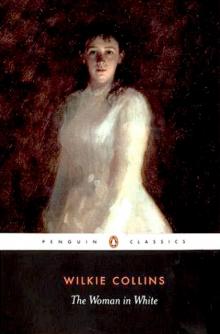 The Woman in White
The Woman in White The Queen of Hearts
The Queen of Hearts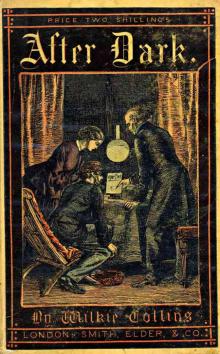 Miss Jeromette and the Clergyman
Miss Jeromette and the Clergyman Man and Wife
Man and Wife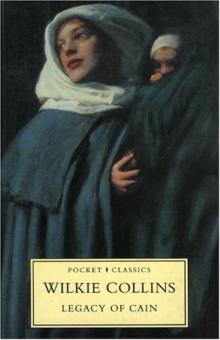 The Legacy of Cain
The Legacy of Cain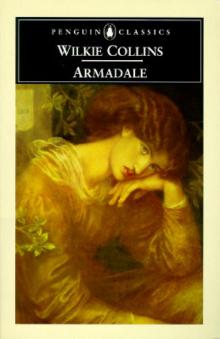 Armadale
Armadale The Frozen Deep
The Frozen Deep John Jago's Ghost or the Dead Alive
John Jago's Ghost or the Dead Alive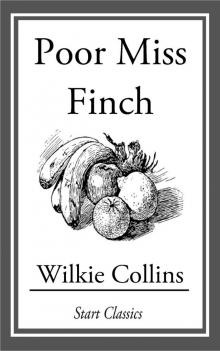 Poor Miss Finch
Poor Miss Finch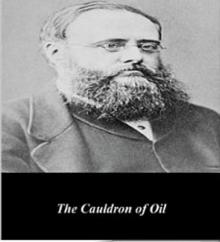 The Cauldron of Oil: A Case Worth Looking At
The Cauldron of Oil: A Case Worth Looking At The Poisoned Meal
The Poisoned Meal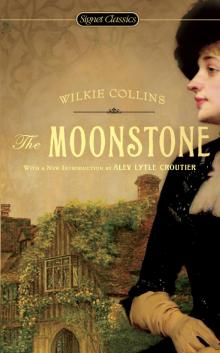 The Moonstone
The Moonstone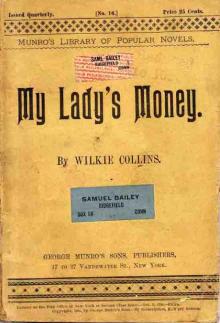 My Lady's Money
My Lady's Money Classic Ghost Stories
Classic Ghost Stories Jezebel's Daughter
Jezebel's Daughter The Devil's Spectacles
The Devil's Spectacles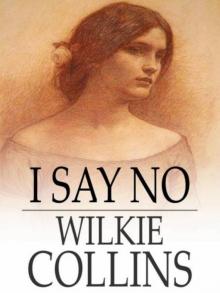 I Say No
I Say No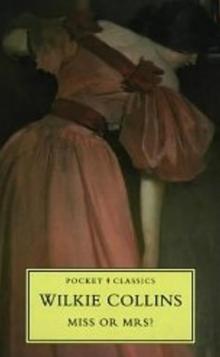 Miss or Mrs.?
Miss or Mrs.?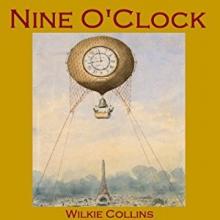 Nine O'Clock
Nine O'Clock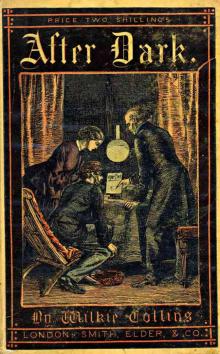 The Lawyer's Story of a Stolen Letter
The Lawyer's Story of a Stolen Letter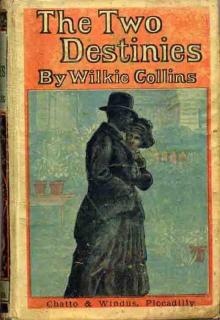 The Two Destinies
The Two Destinies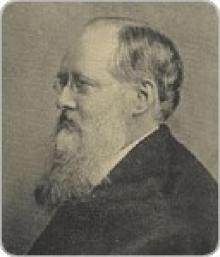 Mr. Percy and the Prophet
Mr. Percy and the Prophet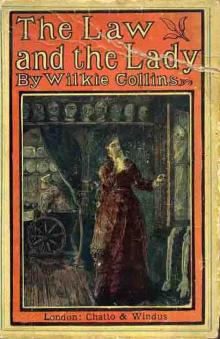 The Law and the Lady
The Law and the Lady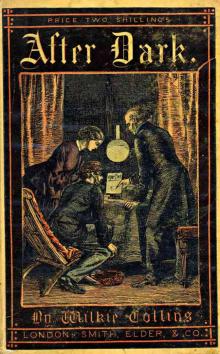 The Nun's Story of Gabriel's Marriage
The Nun's Story of Gabriel's Marriage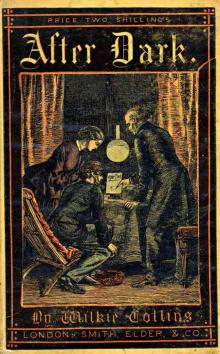 After Dark
After Dark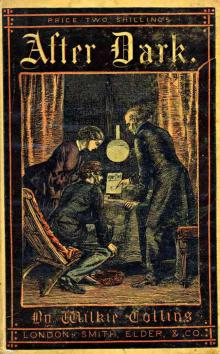 Mr. Captain and the Nymph
Mr. Captain and the Nymph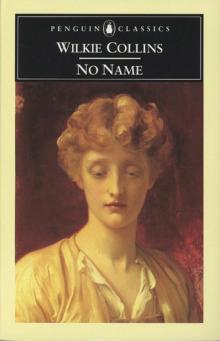 No Name
No Name The Moonstone (Penguin Classics)
The Moonstone (Penguin Classics) Antonina
Antonina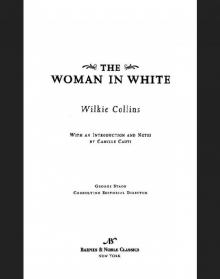 Woman in White (Barnes & Noble Classics Series)
Woman in White (Barnes & Noble Classics Series)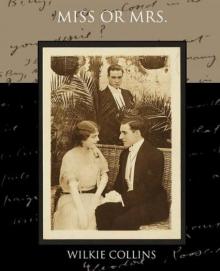 Miss or Mrs
Miss or Mrs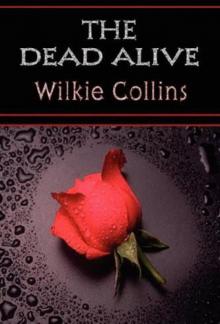 The Dead Alive
The Dead Alive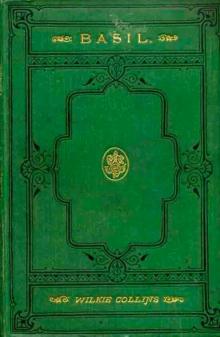 Basil
Basil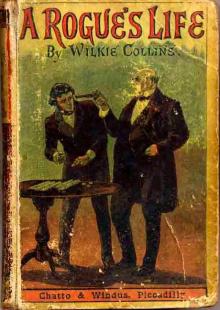 A Rogue's Life
A Rogue's Life The New Magdalen
The New Magdalen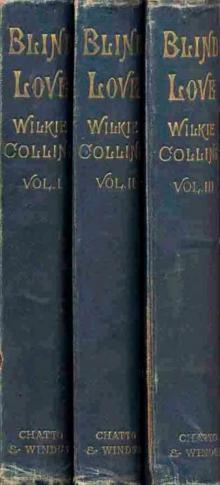 Blind Love
Blind Love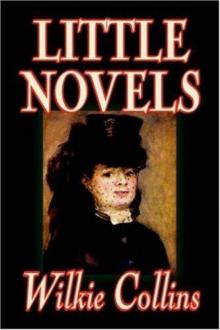 Little Novels
Little Novels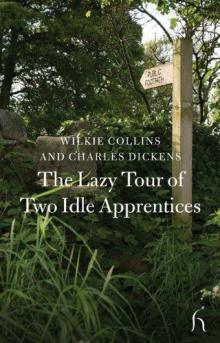 The Lazy Tour of Two Idle Apprentices
The Lazy Tour of Two Idle Apprentices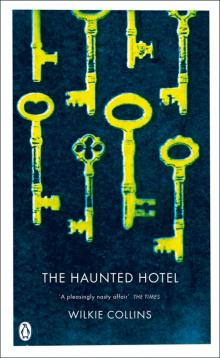 The Haunted Hotel
The Haunted Hotel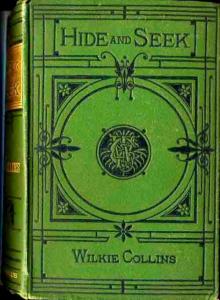 Hide and Seek
Hide and Seek